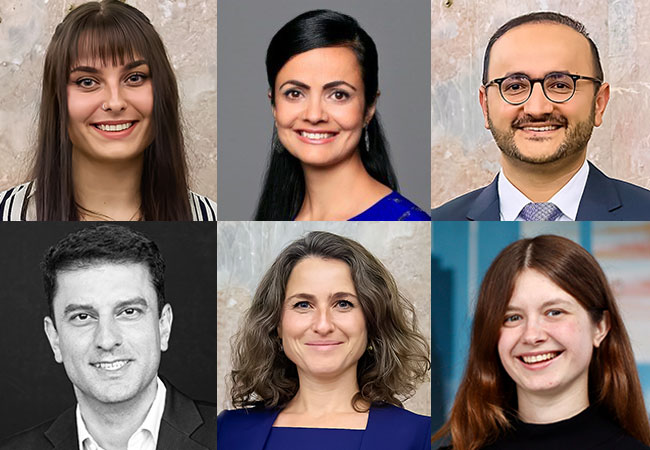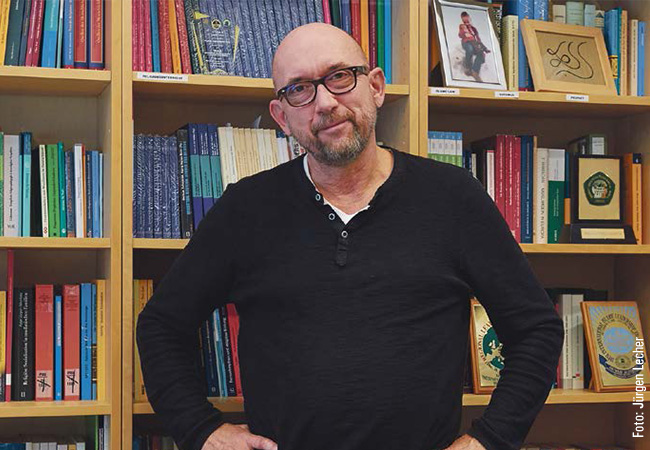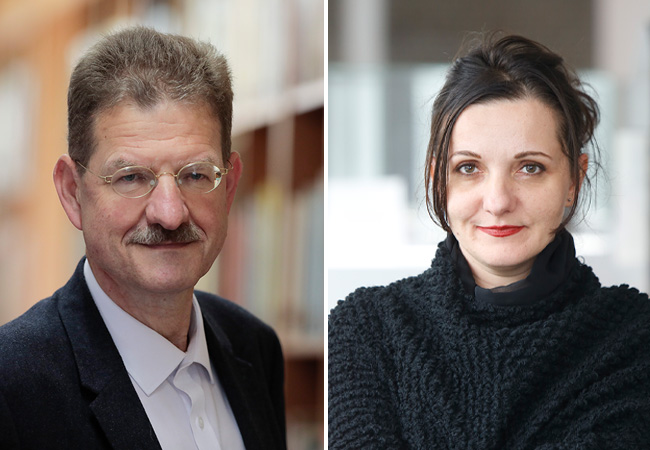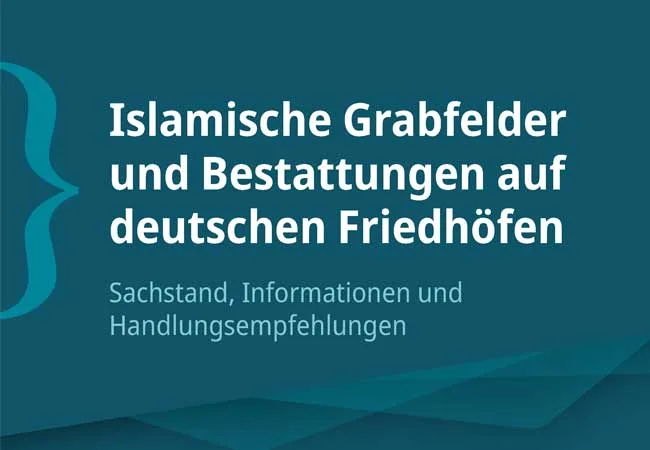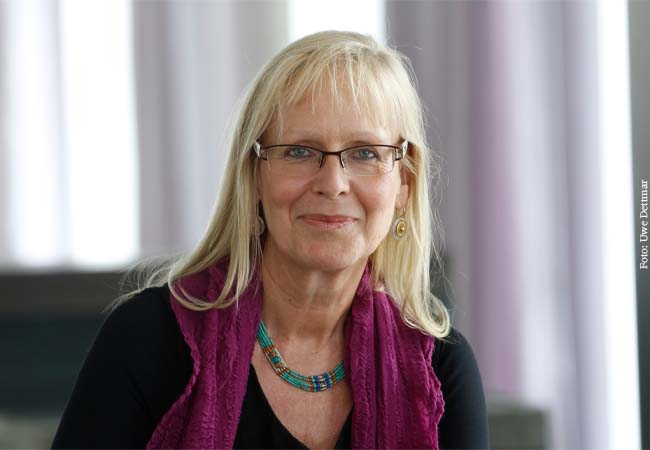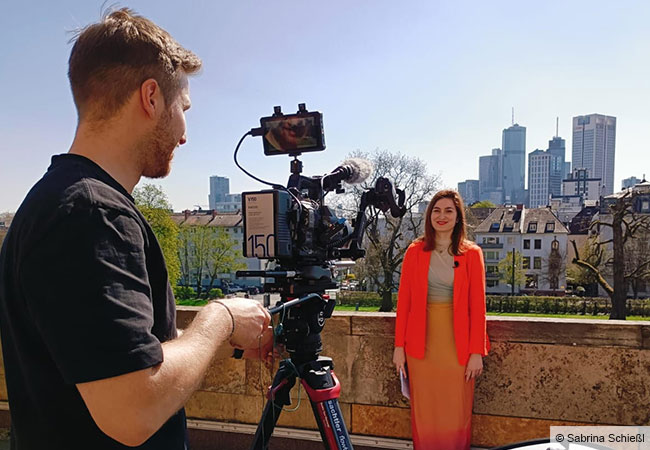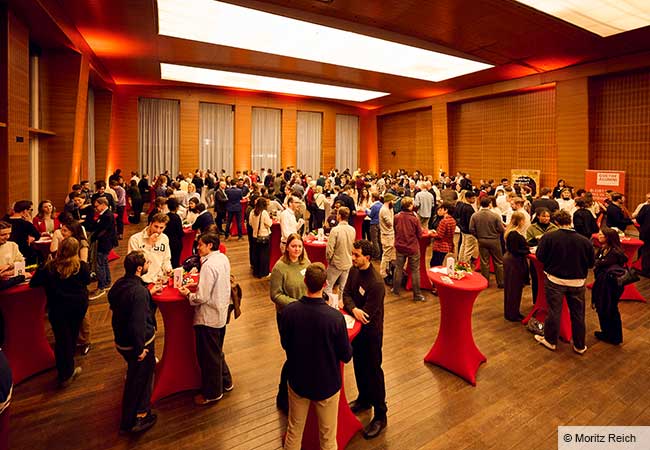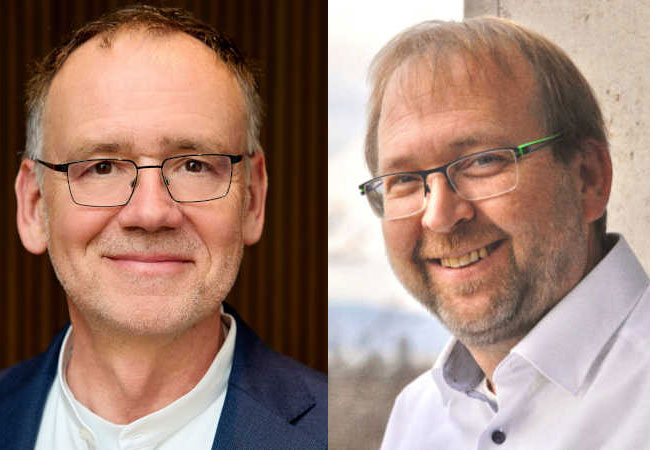„Gay Muslims, is that okay?“ The Internet does not have an answer for pubescent Jakub, who entered the question into the German online Q&A platform “Gutefrage”. Nothing, that is, apart from comments from hate preachers, who want to „cure“ him of his homosexuality. That is why it is a “huge success story”, says Seyran Ates, lawyer, feminist, and imam of the liberal Ibn Rushd-Goethe Mosque in Berlin, which she co-founded, that a public event like „Queer in Islam“ can take place at all. Ates was one of the speakers at the expertly staffed conference, initiated by Susanne Schröter, professor of ethnology at Goethe University and a member of the „Hessian Integration Conference“ and other Islam-related initiatives. The event’s objective: to bring the topic into the university debate and examine it from a religious, social, historical and legal perspective. Nothing better illustrates that this still amounts to breaking a taboo than the police presence in front of the venue and the fact that some of the speakers are under police protection.

Gay and Muslim, is that ok? Jakub, now known as drag queen KweenGipsy in social media, and Muslim gay activist Tugay Sarac, both speakers at the conference, have decided that homosexuality and Islam go together. Their life stories are replete with the hostility they experience because of this conviction, with losses of family contacts, for example, but also with liberation and encouragement.
Most Islamic countries have laws in place against homosexuality, which allegedly violates the divine order. Do the Koran and the Sunna justify such a religious prohibition, or do they offer room for interpretation for a liberal Islam? These questions were addressed by Prof. Dr. Mouhanad Khorchide and Dr. Ali Ghandour, Islamic scholars at the University of Münster. While religious educator Khorchide argued for a historical-critical understanding of the texts in favor of a liberal Islam, Ghandour spoke out against „theology fetishism“ and the debate’s text-centeredness: „Arguing with text passages leads nowhere.“ In any case, he added, a look at history shows how diversely Islam and the Islamic faith have been lived. The cultural comparison by ethnologist Schröter also documented – contradictory – diversity: She pointed out that in Pakistan, Oman and Indonesia, so-called „third genders“ are officially recognized, and in Iran transgender is not considered a culpable offense. But in places where Sharia law is strictly observed by political Islam, homosexuality and transsexuality are prosecuted and sometimes punished with the death penalty. One thing Schröter leaves no doubt about is that, if there was room for action at all, it was reserved to men. The role of women was clearly defined in the patriarchy of Islam.

In his lecture, psychologist Ahmad Mansour, managing director of “MIND prevention for the promotion of democracy and prevention of extremism”, an institution he founded, explained that the real cause for the taboo on sexual diversity is patriarchy. As the last link in the hierarchical chain, children learn to be completely subordinate; the father, brother, or uncle calls the shots, and any deviation from the proclaimed norm is considered a personal attack, a risk of losing power, and a destabilization of cultural identity. Studies prove, Mansour said, that the suppression of self-determination leads to depression and living mostly agonizing double lives. „Patriarchy is afraid of everything that thinks, loves and lives differently,“ Seyran Ates summed it up in the concluding panel discussion. That is why it is still necessary to fight vehemently for the self-determination of women and men even among third-generation Muslim immigrants, Mansour said in his lecture. To fight for the conviction that individuality constitutes no danger to Islam, but is an enrichment.



